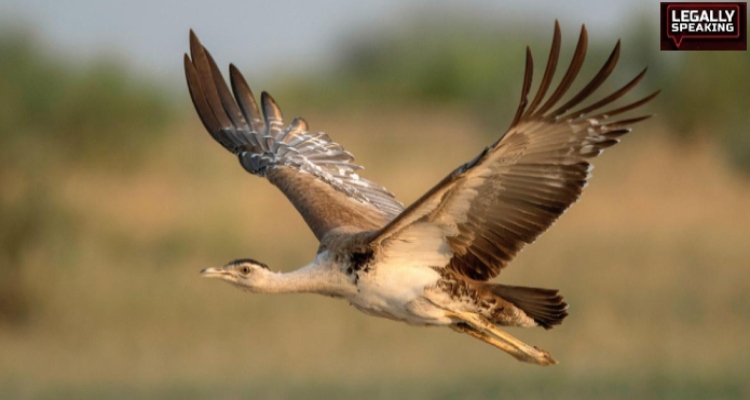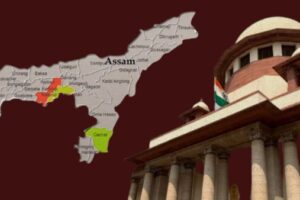
The Supreme Court has recently constituted an expert committee to examine the preservation of the Great Indian Bustard, emphasizing its non-negotiable status and the necessity for sustainable development to fulfill the country’s international commitments toward promoting renewable energy sources.
A bench of Chief Justice of India DY Chandrachud, JB Pardiwala, and Manoj Misra issued the order while hearing a matter concerning the protection of the Great Indian Bustard (GIB). The court has sought a report from the committee by July and scheduled the matter for the second week of August 2024.
In its order, the court stated, “We are of the view that it will be appropriate if an expert committee is appointed so as to balance both the need for the preservation of the GIB, which is non-negotiable and the need for sustainable development, more particularly, in the context of meeting the international commitments of the country towards promoting renewable sources of energy.”
During the proceedings, the Court stressed the importance of taking proactive measures to safeguard the GIB. The court order read, “There is no dispute in regard to the fact that the GIB is seriously endangered as a species. At the same time, it has emerged in the course of the hearing that there is no adequate basis to impose a general prohibition in regard to the installation of transmission lines in an area as wide as over 88,000 square kilometers.”
The committee comprises the Director of the Wildlife Institute of India, Dehradun; Hari Shankar Singh, Member of the National Board for Wildlife; Niranjan Kumar Vasu, Ex-Principal Chief Conservator of Forest; B Majumdar, former Chief Wildlife Warden and Principal Chief Conservator of Forest, Maharashtra; and Devesh Gadhavi, Deputy Director of The Corbett Foundation, among others.
The committee’s responsibilities include determining the scope, feasibility, and extent of overhead and underground electric lines in the priority areas identified in the reports of the Wildlife Institute of India in the States of Rajasthan and Gujarat.
Furthermore, the committee will address the need for conservation and protection measures for the GIB, as well as other fauna specific to the topography and desert features, and identify measures to ensure the long-term survival of the GIB in priority areas.
It will also explore suitable alternatives for laying future power lines in the context of sustainable development, aiming to balance conservation efforts with the fulfillment of India’s international commitments for renewable energy development.
The court clarified, “The injunction which has been imposed in the order dated April 19, 2021, in respect of the area described as the potential area shall accordingly stand relaxed subject to the condition that the Expert Committee appointed by this Court may lay down suitable parameters covering both the priority and potential areas.”
The Committee is empowered to impose additional measures, including the efficacy and suitability of installing bird diverters on existing and future power lines, if deemed appropriate, the court added.
Previously, a three-judge bench had instructed the relevant authorities to convert overhead cables into underground power lines. The court’s order was issued in response to a plea seeking protection for two species of birds, including the Great Indian Bustard, citing the threat posed by overhead power lines to their survival.





